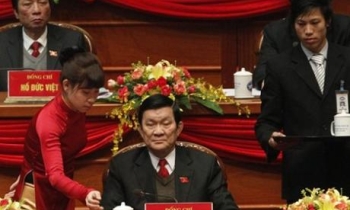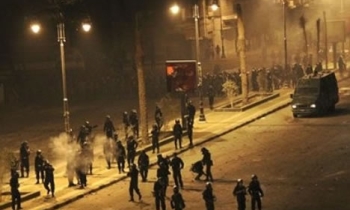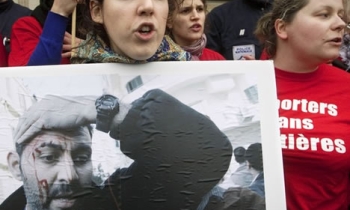Nearly four months after Prime Minister Meles Zenawi's government launched a crackdown on Ethiopia's press following post-electoral street protests, there has been an alarming deterioration in press freedom conditions. Self-censorship is rife, critical newspapers are shrinking in number and 14 journalists face charges that could bring the death penalty, the Committee to Protect Journalists (CPJ) has reported.

CPJ sent a delegation to Ethiopia last week that met government officials, including Zenawi, and local journalists. The group also visited Kality Prison, where 14 journalists are being held. CPJ said the government's repressive actions against the independent press were being fuelled by deep political divisions that erupted last November, when opposition leaders organised demonstrations to protest the results of the May 2005 parliamentary elections. Zelawi's ruling party, the Ethiopian People's Revolutionary Democratic Front won the most seats in the election.
Government officials told the CPJ delegation that the crackdown was necessary because of inflammatory reporting by journalists, whom they accused of being agents of the opposition. Local journalists said that the government had made balanced coverage impossible by refusing interviews with reporters who report critically on the government. They said there was constant government harassment and subtle forms of censorship, including pressures placed on printers not to print independent papers.
"The press is a reflection of politics," said Amare Aregawi, editor of the Reporter, one of the very few private newspapers that have published without interruption during the crackdown. "There's no tolerance. It's 'you are either with us or against us,' and that is reflected in the media."
Fourteen journalists are facing treason and genocide charges and could face the death penalty. They have been detained since the November crackdown. Several other journalists have recently been arrested and sentenced under Ethiopia's press law, which criminalises defamation, insult and the publication of "false news."

The prime minister told the CPJ delegation that the 14 journalists facing treason and genocide charges would be guaranteed a "fair and proper trial" but said he could not interfere in the judicial process. Zenawi said the government would review the prosecution of journalists under the other charges. Zenawi said it was not government policy to prosecute journalists under the current press code, which is being revised in consultation with international experts and local stakeholders.
But progress, he said, would depend on political developments. "We are aware that the poison is not merely between the press and the ruling party. It's a reflection of the overall tension between some in the opposition and the ruling party. It's a function of that divide. So in the end, removing this animosity will partly depend on how successful we are in terms of reconciling the parliamentary opposition and the ruling party."
The crackdown in Ethiopia has not been confined to the independent press. In rural areas, federal police have threatened, beaten and detained opposition supporters, students and people with no political affiliation, reports Human Rights Watch. Federal police also played a key role in the violence in Addis Ababa in early November, when 40 demonstrators were shot and killed.
Pregnant Internet journalist Frezer Negash was released last week after being jailed for six weeks without charge, but she is still under police investigation, justice ministry officials confirmed to CPJ. Negash is a correspondent for the US-based website Ethiopian Review, which is highly critical of the government. Its editor, Elias Kifle, is one of several diaspora journalists charged in absentia with treason.
Diaspora journalists charged include five Washington-based staff members of the Voice of America (VOA), which broadcasts into Ethiopia in Amharic. A source told CPJ that authorities regarded VOA as "anti-peace media" because of its reporting on last year's deadly riots. State media have been used to smear VOA and the Amharic service of Deutsche Welle.

Tamrat Giorgis, an editor with the English-language business weekly Fortune, said recent events had taught him that "all it would take to stop me publishing is one phone call." Many local journalists, especially those whose newspapers are no longer publishing, were reluctant to meet the CPJ delegation in public places or in groups for fear of reprisal. The press is itself divided, with tensions high between the private and state media.
Fewer than 10 private newspapers can now be found on the streets, compared to more than 20 during the election period, when critical weeklies in the local Amharic language mushroomed. Self-censorship is rife, according to CPJ's analysis of news coverage. Among independent publications, only the Reporter, which appears once a week in English and twice in Amharic, and Fortune continued to publish uninterrupted during the crisis, editors told CPJ.
"Ethiopian freedom of the press is a victim from both within and without," said Aregawi. He accused the government of harassing the private press and punishing it for "unnecessary things" but said some journalists had been guilty of shoddy practices. Regardless, Aregawi said, imprisonment on treason charges was unwarranted.









